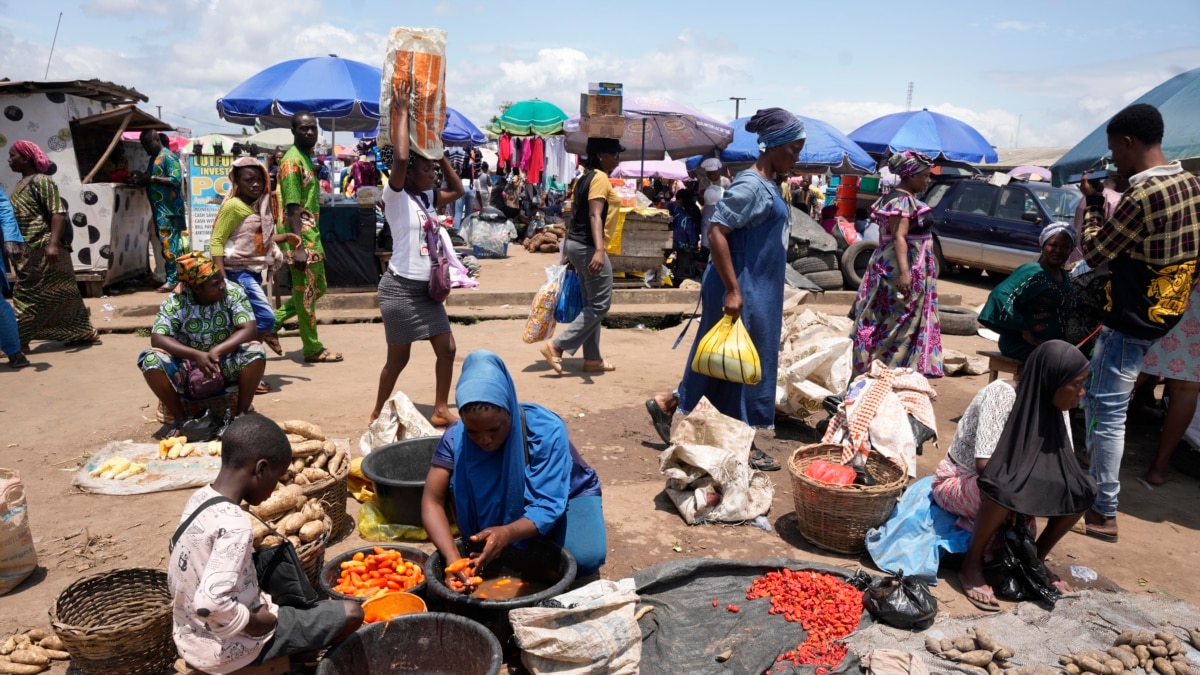Nigeria’s National Security Adviser Nuhu Ribadu has detained two senior executives of cryptocurrency exchange platform Binance in connection with alleged financial crimes, the company’s lawyer confirmed March 4. Senator Ihenyen, Binance’s legal representative, said that one of the executives is a U.S. — and the other a U.K. — citizen.
On March 1, Bayo Onanuga, special adviser to President Bola Tinubu told the BBC that the Nigerian government “is demanding $10 billion in compensation from the cryptocurrency firm Binance.”
On February 27, Central Bank of Nigeria Governor Yemi Cardoso claims the country is unable to identify and prevent the cryptocurrency flow schemes used by Binance:
”In the case of Binance, In the last one year, 26 billion dollars has passed through Binance Nigeria from sources and users who we cannot adequately identify.”
That is false.
The origins of cryptocurrencies can be traced through a public distribution ledger using Blockchain Explorer and analytical tools.
Anyone seeking to open an account with most cryptocurrency exchanges, including Binance, must provide a government-issued identification document.
“Identity verification requires information that can be used to — of course — verify your identity, like a valid ID card, utility bills containing your home address, or a passport,” Binance says on its website.
All that data is stored in a blockchain that also contains the transaction value, the block number and a transaction hash that is similar to a receipt.
Binance also says on its website:
” When individuals transact using cryptocurrencies, they use wallet addresses instead of personally identifying information … While the wallet addresses are not linked to real-world identities, patterns of transactions and additional information can potentially be used to uncover the identity of individuals involved in certain transactions.”
Once a transaction is recorded on the blockchain, it cannot be altered or deleted and is publicly accessible.
The U.S. Department of Justice announced on November 21, 2023, that “Binance Holdings Limited (Binance), the entity that operates the world’s largest cryptocurrency exchange, Binance.com,” had that day “pleaded guilty and has agreed to pay over $4 billion to resolve the Justice Department’s investigation into violations related to the Bank Secrecy Act (BSA), failure to register as a money transmitting business, and the International Emergency Economic Powers Act (IEEPA).”
The DOJ announcement added: “Binance’s founder and chief executive officer (CEO), Changpeng Zhao, a Canadian national, also pleaded guilty to failing to maintain an effective anti-money laundering (AML) program, in violation of the BSA and has resigned as CEO of Binance.”
Binance is banned in the U.S. states of Hawaii, Idaho, Louisiana, New York, Texas and Vermont due to regulator concerns. It is also banned in Belgium, India, Philippines, Australia, Netherlands, Canada and the United Kingdom.
In 2023, the World Bank estimated that Nigerians living abroad had remitted about $20.1 billion.
Although the World Bank did not mention Binance or any other cryptocurrency exchange, it said “[f]ixed exchange rates and capital controls are diverting remittances to the region from official to unofficial channels.”
The “unofficial channels” mentioned by the World Bank can be traced to the Central Bank of Nigeria’s regulations on foreign exchange markets, which are part of the problem.
Nigeria has multiple exchange rates, which has resulted in discrepancies, currency speculation and limited transparency in foreign exchange operations.
These exchanges include the Central Bank or Nafex rate, which is different from the Interbank Exchange Rate, Investors and Exporters (I&E) Window Rate, street Market, and Bureau De Change (BDC), or black-market rates.
Traders using a Bureau De Change or street market can exploit a loophole allowing them to source money, especially dollars, through unofficial channels and sell them at rates determined by supply and demand.
Even so, the Nigerian government has set guidelines on how such markets should operate. The website of the Central Bank of Nigeria states that a Bureau De Change is “a company licensed by the CBN to carry on only retail foreign exchange business in Nigeria,” meaning it can trace the identity of anyone running a Bureau De Change using the documents provided at registration.
Nigeria is one of the most corrupt countries in the world, according to Transparency International, which has ranked it the 154th most corrupt out of 180 countries.
Corruption at the Central Bank of Nigeria has caused a backlog of $7 billion foreign exchange owed to local lenders by the government.
On February 5, a forensic audit by Deloitte management consultants that the Central Bank governor ordered had uncovered irregularities affecting $2.4 billion worth of transactions.
Cardoso told Nigeria’s Arise TV: “The irregularities ranged from missing paperwork to non-existent entities and beneficiaries receiving unauthorized foreign exchange allocations.”
Last November, Godwin Emefiele, Cardoso’s predecessor, was charged with procurement fraud, forgery, conspiracy to commit forgery and felony, and criminal breach of trust.

